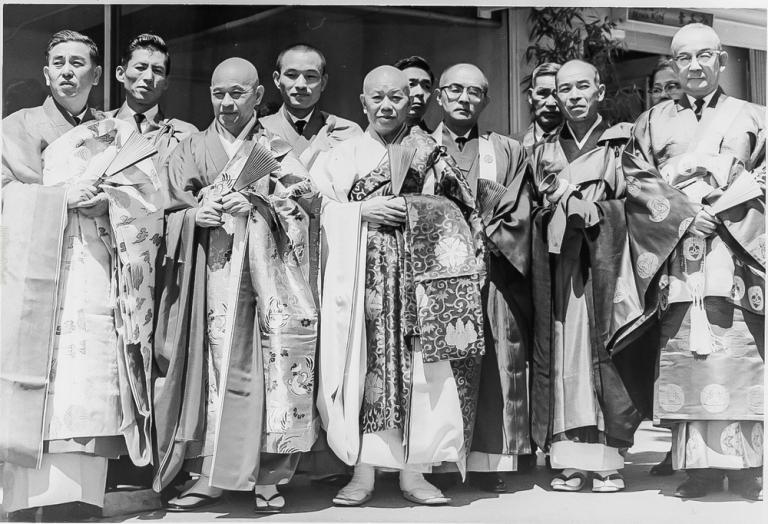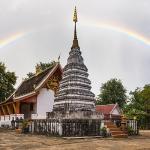
Shunryu Suzuki was born on the 18th of May, 1904, in a village about fifty miles from Tokyo. In those days that was as if it were a million miles. Maybe a tad less.
It is not possible for me to adequately address just how important Suzuki Roshi was to me in my personal life and to a host of others here in the West who have come to find Zen our heart’s path.
He was a child of the Japanese temple family system, his father was the abbot of Shoganji, the local Soto Zen temple. His mother was the daughter of a temple priest.
Suzuki began formal Zen study at the age of twelve with So-on Suzuki, a successor to and adoptive son of his father, at Zounin temple in Mori. This starting as a child with a successor of his father, was not uncommon in the post-Meiji Zen system.
At thirteen he was ordained unsui, a clouds and water priest. When Suzuki’s teacher moved to another temple Rinsoin, Suzuki followed him. Then at fifteen he returned to his father’s temple.
At this time Suzuki began to study English. This would become a life-long interest of his. And would be a critical skill when he came to America.
Later he continued his formal training with the master Dojun Kato at Kenkoin in Shizuoka. Suzuki attended Komazawa University, studying Buddhism and English. At twenty-two he received Dharma transmission from his teacher. However he continued his training entering Eiheiji, one of the two mother temples of the Soto school in Japan. He later also studied at Sojiji, the other of the two mother temples.
During the war many Zen priests supported the war effort much to the embarrassment of their later Western disciples. Suzuki’s involvement is unclear, but it does seem he was involved in at least some anti-war activities. This marked him out as unusual, and probably meant he would not advance in the hierarchy. And in fact Suzuki served primarily as a country priest.
Throughout these years his interest in the West continued. Finally in 1959 Suzuki accepted an offer to become priest at Sokoji, a temple in San Francisco that served the Japanese and Japanese-descent community. The temple was founded in 1934, the second Soto Zen temple to be founded in the continental United States. That same year the forming congregation purchased a synagogue at 1881 Bush Street.
Suzuki Roshi’s predecessor, Hodo Tobase, who arrived in 1950, seems to have been the first pastor there to take an interest in non-Japanese speaking people. He offered lectures to those interested in Soto Zen. He must have relied largely on a translator. It appears Suzuki was their first priest to have a solid command of English.
This would prove critical. In 1959, the Beat generation was in full swing and people beyond the East Asian community were first learning there was such a thing as Zen. People started coming to visit the temple asking for instruction. He invited them to sit with him early in the morning.
And with that a convert practice community began to take shape. It eventually become the San Francisco Zen Center complex, and the Branching Streams mahasangha.
The roshi died on the 4th of December, 1971. Shunryu Suzuki was sixty-seven years old.
It is not possible to overstate Suzuki Roshi’s importance in the establishment of Zen in the West. If you want to learn more about him, his biographer David Chadwick maintains an amazing archive at Cuke.com.
My own beginning Zen practice was fostered by his centers. My first instruction was at Sokoji temple, and my practice began at a branch of the Zen Center complex, what was then called the Berkeley Zendo.
And, I am only one of thousands his life and work touched.
Suzuki Roshi left three dharma successors, his son Hoitsu Suzuki, Shoko Okamoto, and an American Richard Baker. Through them the largest stream of American Soto Zen begins.














